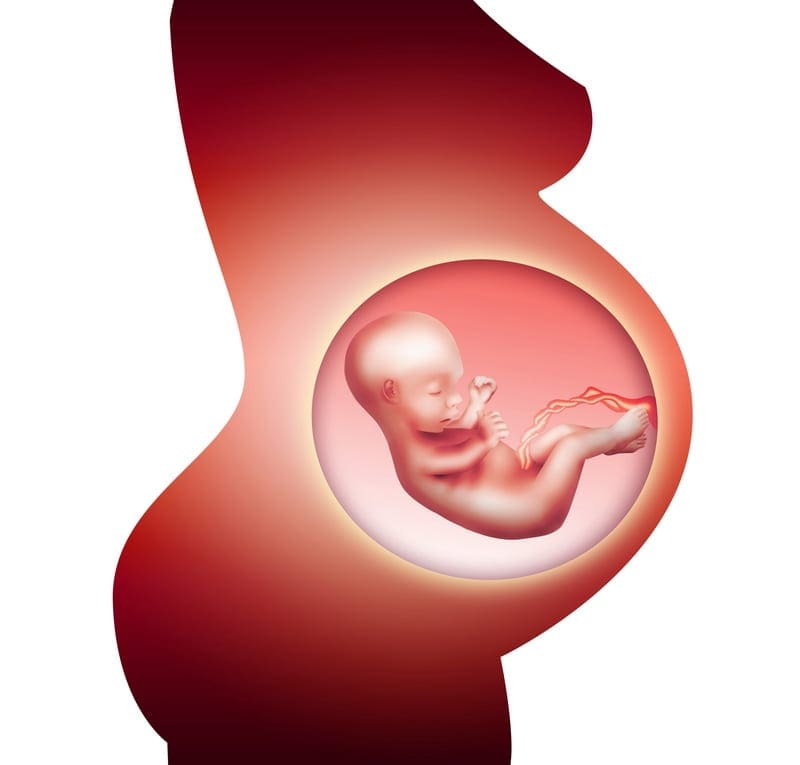Pregnancy problems can refer to any number of common conditions that a pregnant woman may experience. These conditions are usually not serious and will often resolve themselves without any treatment. These normal pregnancy disturbances can occur during pregnancy or within a few weeks or even days after childbirth. In some cases, more severe disturbances may occur which will require medical attention.
Here are some of the most common pregnancy-related issues you may experience during your pregnancy:
Iron deficiency anemia. A lack of iron (Fe) in your blood cells can cause you to feel tired, dizzy, weak, and pale. This can happen because your body is working hard to create new blood cells for your growing baby. Your doctor will look into your hemoglobin level and provide you with some advice to improve your diet. They may also recommend additional vitamins and minerals, with a focus on iron.
Nausea and sickness. This has to do with the hormonal changes in your body that occur during pregnancy. This is a very common symptom of pregnancy. You can try to treat this problem by getting a lot of rest, eating small but frequent meals, and avoiding smells and tastes that might make you nauseous. Try drinking a cup of ginger tea or taking some ginger biscuits, which may help. Please see your doctor if the condition worsens, and you can’t keep any food or fluid down.
Urinary Tract Infection (UTI). UTI, or bladder infection, is a bacterial infection of the lower urinary tract or bladder, and can occur anywhere from the 6th to 24th week of pregnancy. It is considered the most common health problem during pregnancy, and if left untreated, could lead to premature labor. UTI can be symptomless, which is why it’s important for your doctor or midwife to perform regular urine checks.
The most commonly reported symptoms include burning or discomfort during urination, urinary frequency (waking up to urinate at night), and pelvic pain or pressure.
Urinary incontinence. Leaking urine is a very common problem during pregnancy, especially when Sneezing, coughing, laughing, jumping, or running. This is caused by the increasing pressure of the uterus on your bladder, which gives you less room to store urine. The relaxing effect of the urethral muscle is also a contributing factor that you can not control.
However, this will only be temporary. In order to make a more lasting change, you need to do some exercises to strengthen the pelvic floor muscles – this includes the urethral muscles.
The smell test is the most important thing you can do to determine if the fluid is urine. If it smells like ammonia, then it is most likely urine. This is important to differentiate from amniotic fluid, which would be a much more serious problem requiring immediate medical attention.
Hemorrhoids (Piles). This problem is located around your anal area in the form of a varicose vein. The veins under your uterus can become swollen and stretched due to the mounting pressure from the growing baby, which is aggravated by the increase of progesterone hormone that has a vasodilation effect, causing the blood vessels to relax. This can be a very painful condition.
Women who consume less fiber are more susceptible to this condition, therefore the best way to treat it is by consuming high-fiber foods such as wheat bread, pasta, brown rice, and plenty of fruits and vegetables.
Constipation. This is another side effect of the increasing level of progesterone during pregnancy, as it slows down bowel movements and digestion. This can become worse later on in pregnancy when the uterus is bigger and puts pressure on the rectum. Taking iron supplements to treat anemia will make the condition worse.
A high-fiber diet is the best prevention against constipation, so make sure you’re eating plenty of cereals, wheat bread, and lots of vegetables and fruits. You can also add a few tablespoons of raw wheat bran to your cereal in the morning and drink a glass of water with it.
Heartburn. This burning sensation is common among pregnant women and is caused by the softening of the lower esophageal sphincter (LES) due to the increase in progesterone levels. The LES is normally kept tightly closed, but when it relaxes, it can cause stomach contents and gastric acid to flow back up into the throat and esophagus, causing the sour, acidic taste.
Another factor that can worsen the sensation of heartburn is the growing baby that pushes the stomach upwards, causing the reflux of food and gastric acid. There are some things you can do to avoid this from happening. Avoid heartburn trigger foods like chocolate, citrus or sour fruits, mint products, spicy, fried and fatty food. Also, avoid drinks that contain caffeine like coffee, tea or cola.
Varicose veins. These are superficial veins that are swollen and usually appear in the legs, but can also be found around the vagina opening or vulva. They are blue or purple in color and sometimes even form a spider-like pattern. This occurs due to the pressure of the growing baby on the veins (inferior vena cava in particular) that are returning blood to the heart. The pressure blocks the blood stream, which then causes the enlargement of these lower extremity veins.
You may feel heavy and achy in your legs, or you may feel an itchy skin or burning sensation. These symptoms are likely to get worse at the end of the day, especially if you have been walking or standing a lot.
Carpal tunnel syndrome. Carpal tunnel syndrome is a condition that causes numbness, pain, tingling and burning in the fingers, hand, wrist and even arm and shoulder. It usually affects both hands and can come on at any time. This condition is more severe in the 2nd half of pregnancy when swelling from fluid retention becomes more prominent. The symptoms may disappear gradually after labor as the swelling from fluid retention goes down.
Carpal tunnel syndrome occurs when the median nerve, which runs from the forearm to the hand, becomes compressed. This happens when the carpal tunnel – a bony canal at the wrist that houses the median nerve and tendons – narrows due to swollen tissue or fluid retention. The compression of the median nerve causes symptoms like pain, tingling, and numbness in the hand and wrist.
Bleeding gums. Pregnancy hormones are likely responsible for the tendency of easy bleeding gums. The hormone will trigger an inflammation of your gum (gingivitis) which can make it more sensitive and prone to bleeding during brushing or flossing.
Good dental care is essential to maintaining healthy gums and teeth. Gingivitis is a common condition that, if left untreated, can lead to periodontitis – a more serious infection that penetrates deep into the bone and tissue that support your teeth. To avoid this, it is important to brush and floss regularly, and to see your dentist for regular checkups.
To conclude, these are some of the most common problems you may encounter during your pregnancy. However, there are other more serious conditions or illnesses that can interfere with a healthy pregnancy. These are called pregnancy complications and they require special treatments to keep the mother and child healthy and alive during and after labor.
Some common pregnancy complications include:
-Miscarriage
-Ectopic pregnancy (pregnancy outside the womb)
-Hyperemesis gravid arum (severe vomiting)
-Gestational diabetes
-Negative Rhesus factor
-Placental disorders
-HIV/AIDS
-Fetal growth restriction
-Toxoplasmosis
And there are other disorders that I won’t discuss here.










